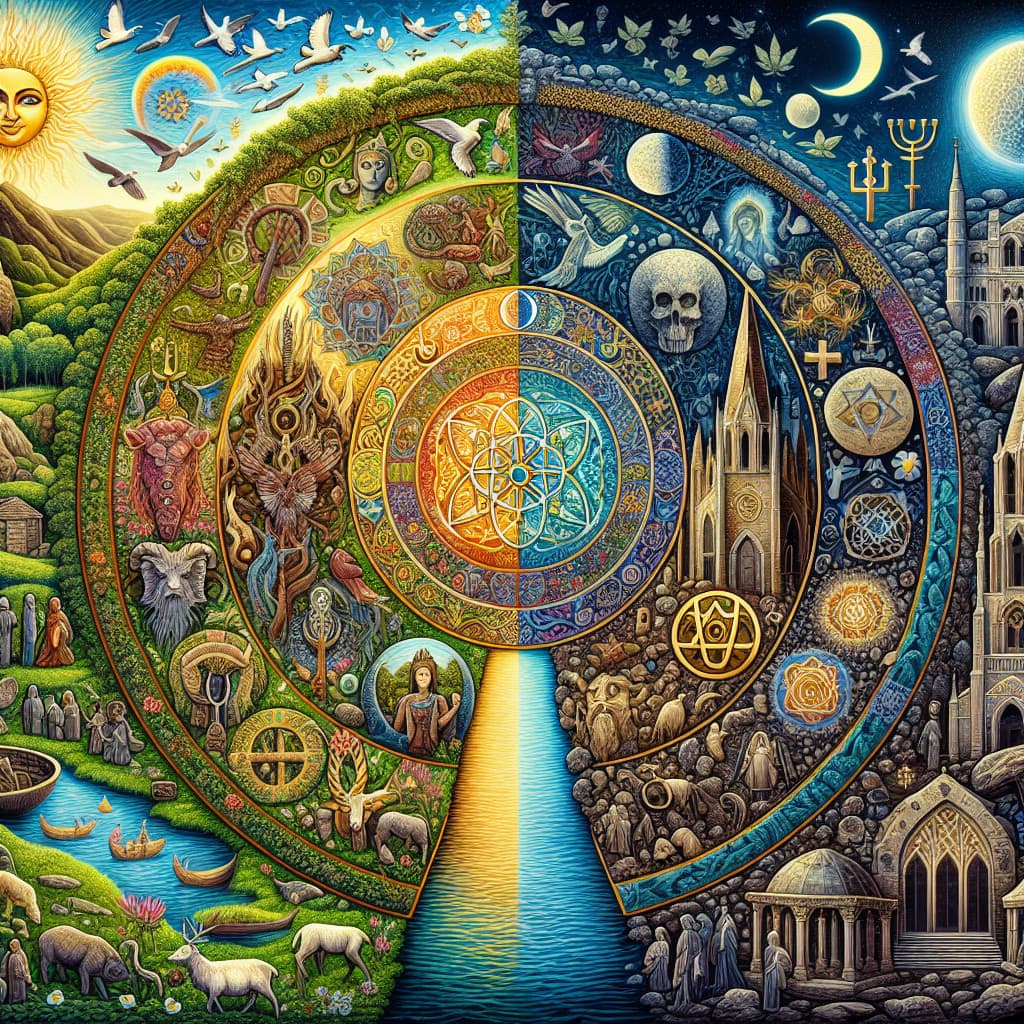The concept of paganism has been around for thousands of years, and it is still practiced in many parts of the world today. It is often associated with polytheism and the worship of multiple deities. But is paganism truly the opposite of what many people consider to be “mainstream” religions? In this article, we will explore the differences between paganism and other religions, as well as what it means to be a pagan and how it can be a positive lifestyle choice.

Paganism is a set of spiritual beliefs that are based on the worship of nature, the divine, and the ancestors. It is often seen as the opposite of Christianity, with its emphasis on the power of the supernatural, but it is a much older and more diverse set of beliefs than Christianity. It is a polytheistic religion that is based on the worship of multiple gods and goddesses, and the belief in their power to influence events in the physical world.
What is Paganism?
Paganism is an umbrella term that covers a range of spiritual and religious beliefs. It is based on the worship of nature and the divine, and includes many different belief systems, including Wicca, Druidism, and Asatru. Paganism is typically polytheistic, meaning that it includes the worship of multiple gods and goddesses. It is also animistic, believing that all things have a spirit or a soul. Pagans revere the cycles of nature and believe that we are all connected to the natural world.
Paganism is an ancient belief system that predates Christianity. It is believed to have originated in Europe and the Middle East, although there is evidence of its presence in other parts of the world as well. It has been practiced by many different cultures throughout history, including the Celts, the Norse, and the Greeks.
What are the Beliefs of Paganism?
Paganism is a diverse set of beliefs, but there are some core beliefs that are shared by most pagans. These include:
- Nature worship: Pagans believe that nature is sacred and should be respected and honored. They view the natural world as a source of wisdom and spiritual guidance.
- Polytheism: Pagans believe in multiple gods and goddesses, each of whom represents a different aspect of the divine. They also believe that all gods and goddesses are interconnected, and that we are all connected to the divine.
- Animism: Pagans believe that all things, both living and non-living, possess a spirit or a soul. They view the world as an interconnected web of life, and they seek to live in harmony with the natural world.
- Rituals: Pagans believe that rituals are an important part of connecting with the divine. These rituals can take many forms, including prayer, meditation, and offerings to the gods.
What are the Practices of Paganism?
Pagans believe that rituals are an important part of connecting with the divine. These rituals can take many forms, including prayer, meditation, and offerings to the gods. They also practice divination, or the use of various tools and techniques to gain insight into the future. They may also practice spell-casting, or using rituals and magick to bring about desired outcomes. Pagans also often gather in circles to celebrate the changing of the seasons, or to perform rituals to honor the gods and goddesses.
What is the Difference Between Paganism and Christianity?
Paganism and Christianity are two very different belief systems. Christianity is a monotheistic religion that is based on the teachings of Jesus Christ and the Bible. Paganism, on the other hand, is a polytheistic religion that is based on the worship of multiple gods and goddesses, and the belief in their power to influence events in the physical world. Additionally, Christianity is focused on the power of the supernatural, while Paganism is focused on the power of nature and the divine.
Conclusion
Paganism is an ancient set of beliefs that is based on the worship of nature and the divine. It is a polytheistic religion that is focused on the power of the natural world and the power of the gods and goddesses. Pagans practice rituals and magick in order to connect with the divine, and they seek to live in harmony with the natural world. Although Paganism and Christianity are two very different belief systems, they both have a shared respect for the power of the divine and the importance of living in harmony with nature.
In conclusion, paganism is a complex and diverse set of beliefs and practices that have evolved over time. It is a spiritual path that is open to each individual’s interpretation and understanding. While there are some core beliefs and practices that are shared amongst pagans, there is no one single definition of what it means to be a pagan. Ultimately, paganism is an individual journey and is not necessarily the opposite of any other religion. It is a spiritual path that encourages personal growth and exploration of the divine.





